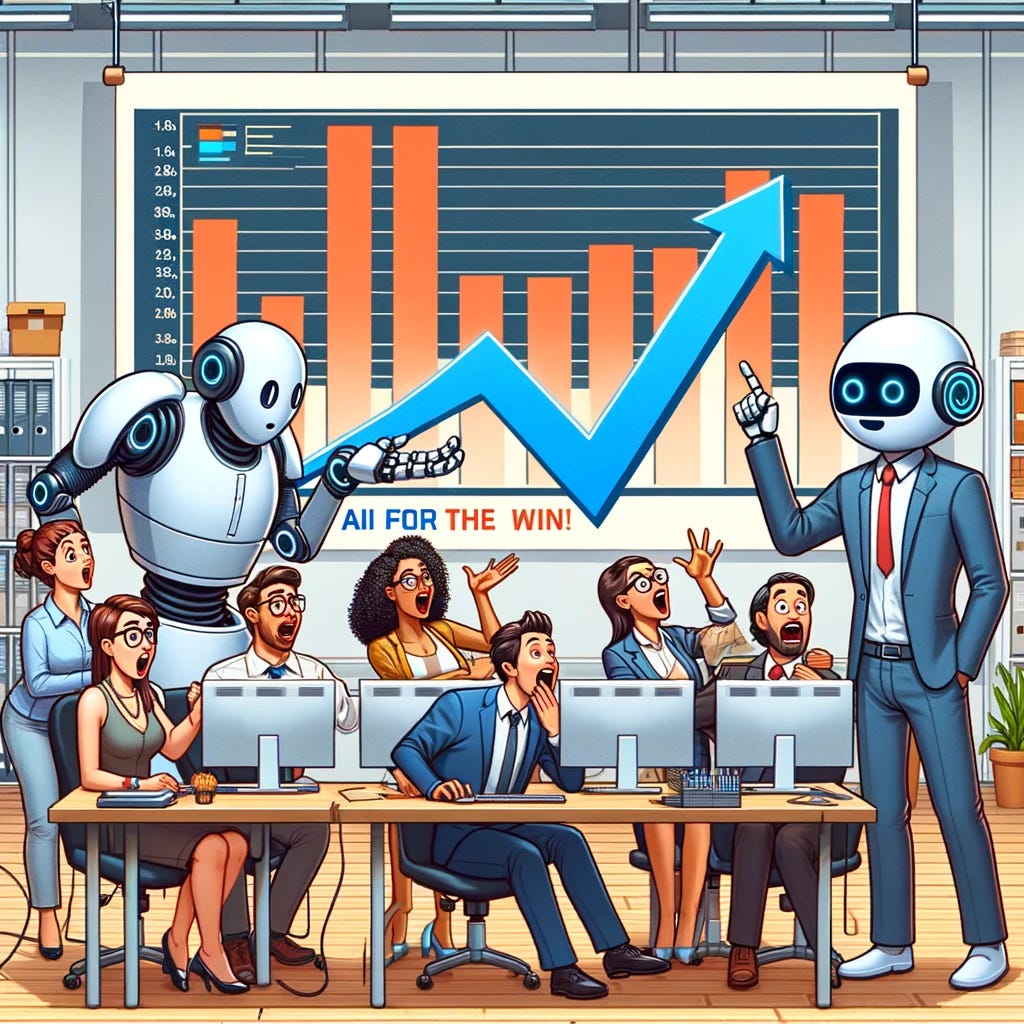Unleashing Growth in B2B: The Power of AI and Automation
Visionary founders in the B2B space are leveraging cutting-edge technologies like AI agents, automation tools, and scraping bots to redefine the parameters of business growth and operational efficiency. This technological empowerment is especially transformative in sectors where a high-touch sales process is unnecessary, allowing businesses to accelerate growth with significantly lower capital investments and enhanced agility.
The Role of AI and Automation in B2B Innovation
The integration of AI and automation into the B2B sector is not just a trend but a substantial shift in how companies operate and scale. Artificial Intelligence (AI) agents are now at the forefront, capable of conducting intelligent and meaningful interactions with customers and clients. These AI systems can analyze large volumes of data to predict customer behavior, personalize communications, and optimize sales strategies without human intervention.
Automation tools further enhance these capabilities by streamlining repetitive tasks, thus freeing up human resources to focus on more strategic activities. This shift not only improves operational efficiency but also reduces the likelihood of human error, thereby increasing the overall quality of service.
Scraping bots, on the other hand, are pivotal in gathering and processing vast amounts of data from the web. This information is crucial for market analysis, lead generation, and competitive intelligence. By automating data collection, companies can quickly adapt to market changes and customer needs with unprecedented speed and precision.
Catalyzing Core Growth with Minimal Capital
Traditionally, rapid business growth, especially in the B2B realm, required substantial capital investments, often obtained through venture capital (VC) funding. However, the advent of AI and automation is changing this dynamic. These technologies enable companies to scale operations and increase revenue without necessarily increasing their human workforce or overhead costs significantly.
For startups and small enterprises, this means that the barriers to entry are lower. They can implement powerful AI tools and automation systems at a fraction of the cost of hiring a large team. As a result, these businesses can maintain lean operations while still competing effectively in the market, leading to more sustainable growth with minimal external funding.
The Impact on High-Touch Industries
In industries where the sales process has traditionally been high-touch and reliant on personal interactions, AI and automation introduce a paradigm shift. For example, in real estate or enterprise software sales, AI-driven chatbots and automated customer relationship management (CRM) systems can handle initial inquiries and maintain customer engagement without human intervention. This automation allows companies to maintain a high level of service and responsiveness while focusing human efforts on closing deals and building relationships where they are most needed.
Furthermore, the analytics provided by AI can help businesses in these sectors understand customer preferences and pain points more deeply, enabling them to tailor their offerings more effectively without extensive market research.
Agile Bootstrapping and VC Independence
The ability to grow rapidly with minimal capital investment is particularly appealing to founders who prefer to maintain control over their companies. Agile bootstrapping, or growing a business within its means without significant external funding, becomes more viable with AI and automation. These technologies reduce the need for large upfront investments in human resources, allowing founders to reinvest profits into strategic growth areas and innovate continuously.
Moreover, reducing reliance on VC funding can be advantageous. It allows businesses to avoid diluting ownership and pivoting to meet investor expectations rather than customer needs. With AI and automation, the focus remains on building a customer-centric business that can adapt and evolve based on real market demands and operational analytics.
The integration of AI agents, automation tools, and scraping bots in the B2B sector is more than just a technological upgrade; it is a strategic redefinition of growth and efficiency. These tools empower visionary founders to drive core growth with agility and precision, minimizing capital dependence and maximizing market responsiveness. As these technologies continue to evolve, they promise to further democratize business growth, making it accessible to more entrepreneurs and innovators across various industries. This not only fuels a new wave of business development but also fundamentally alters the competitive landscape, ensuring that the most efficient, responsive, and intelligent enterprises thrive.





